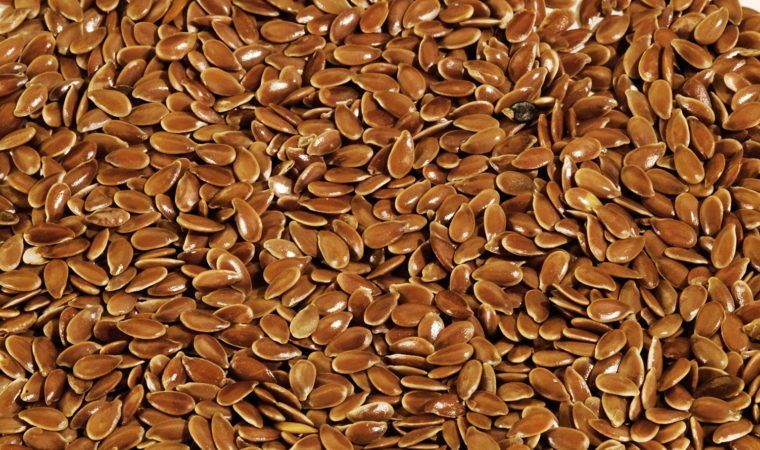Flaxseed has grown in popularity in recent years as some preliminary studies show that it may help fight heart disease, diabetes and breast cancer.
According to WebMD.com, flaxseed was first cultivated in Babylon as early as 3000 BC. King Charlemagne believed so strongly in the health benefits of flaxseed that he passed laws requiring his subjects to consume it during his reign in the 8th century.
While flaxseed contains several healthy components, there are three that stand out:
- Alpha-linolenic acid (ALA), an Omega-3 essential fatty acid that is one of the so-called “good fats” that have been shown to have heart-healthy effects. Each tablespoon of ground flaxseed contains about 1.8 grams of plant omega-3s.
- Lignans, which have both plant estrogen and antioxidant qualities. Flaxseed contains 75 to 800 times more lignans than other plant foods.
- Fiber. Flaxseed contains both the soluble and insoluble types.
Here are five benefits that you may find from including flaxseed in your daily diet.
Heart disease
A diet rich in fruits, vegetables, whole grains, nuts or legumes, and foods with ALA may reduce the risk of heart attack and stroke, both for people who have never had either problem and for those who have already had a heart attack or a stroke. Evidence suggests that people who eat an ALA-rich diet are less likely to have a fatal heart attack. Several human studies suggest that a diet rich in omega-3 fatty acids (including ALA) may lower blood pressure in people with hypertension. (University of Maryland Medical Center)
Hypertension
According to the Centers for Disease Control and Prevention, around a third of Americans (68 million) has high blood pressure, also known as hypertension. According to Greek researchers, flaxseed oil may be able to help. In their 12-week study of 59 middle-aged men, they discovered that flaxseed oil consumption resulted in significantly lowered blood pressure readings. Consider adding flaxseed oil to your diet and you may be saving yourself from the headaches associated with hypertension. (mensfitness.com).
Protecting against cancer
Consuming flaxseed may help protect against prostate, colon and breast cancers. Flaxseed is thought to prevent the growth of cancerous cells because its omega-3 fatty acids disrupt malignant cells from clinging onto other body cells. In addition, the lignans in flaxseed have antiangiogenic properties — they stop tumors from forming new blood vessels. (medicalnewstoday.com)
Lowering cholesterol
Researchers at the Iowa State University’s Nutrition and Wellness Research Center found that cholesterol levels lowered among men who included flaxseed in their diet. Suzanne Hendrich, lead author of the study, said that for “people who can’t take something like Lipitor, this could at least give you some of that cholesterol-lowering benefit.” (medicalnewstoday.com)
Improve digestive health
The fiber in flaxseed can help relieve constipation and make you more regular. (everydayhealth.com)
Precautions
Even though the practice of using herbs to strengthen the body and treat disease has been around for centuries, herbs can have side effects and interact with other herbs, supplements or medications that you may be taking.
Because of that, herbs should be taken with care and you should always check with your doctor before taking any herb or supplement.












